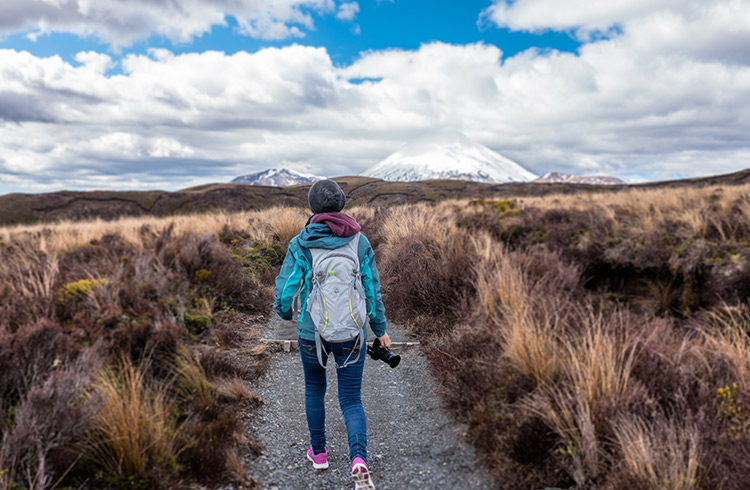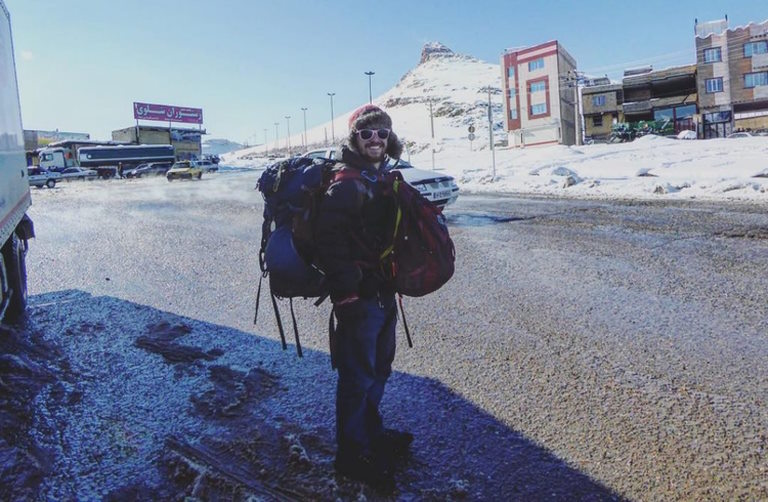Are You Fit to Travel? 8 Things to Check Before You Go
Whether you're training for an overseas high-altitude trek or getting your gut health right before a trip to India, here's what you need to do before you fly.
 Photo © Unsplash/Thomas Schweighofer
Photo © Unsplash/Thomas Schweighofer
If you've ever been really sick in a foreign country, you know you've got to take the situation seriously. It's at best uncomfortable, and at worst, extremely expensive – sometimes frightening.
So, before you pack your bags, make sure you've also looked after the most important thing – your personal health.
1. Vaccinations for travel
Make sure you're up to date
Seek advice at least six weeks before your departure, as some vaccinations don't take effect for several weeks and/or require a series of injections.
2. Malaria
Find out if you'll be traveling through a malarial area, and ensure you have the correct anti-malarial medication for the particular region. This varies according to the destination, and the mozzies' resistance levels.
3. Prescription medicines
When traveling with prescription medication, carry it in your hand luggage, along with a copy of the prescription and a letter from your doctor. The letter should include the name of the medicine, the dosage, how much you need to travel with, and state that the medicine is for your personal use. Also, remember your optical prescription if you wear prescription glasses.
Some drugs, particularly those classified as drugs of addiction – anything containing codeine, or strong painkillers – should not be transported into another country – even if you have a legal prescription for them. Check with the consulate of the country you're visiting to see if your drugs are considered legal. If they're not, you will need to travel with a customs clearance from the country concerned.
If you take medication that is administered by self-injection, you should also check with the embassy or consulate of the country you're visiting to make sure you can travel with your own needles or syringes. Also, inform your airline that you'll be traveling with these medical items, and arrange a letter from your doctor explaining why you need to carry them.
If you buy needles or syringes while overseas, ensure the packs are sterile and properly sealed.
4. Dental
Don't forget to book yourself in for a dental check-up before you leave! Depending on where you're going, dental services may be few and far between.
5. Your general health
It can be hard to look after your health while you're doing rounds of endless farewell parties held in your honor. Those few beers probably look better than the idea of a vigorous jog, a healthy meal, and an early night. But it's all about balance – you've got to keep the long-term goal of actually starting your big trip on par with the damage you can do to yourself just celebrating the idea of it.
It's fair to say that if you come down with pneumonia after all this partying, and suffer 20 hours on a cramped flight, only to emerge in Kathmandu in mid-winter – your big trip isn't really starting out too well.
Combine a bit of common sense – if it's only a head cold, it'll probably go away in a few days – with proper advice from your GP – how will your asthma be affected if you climb that mountain, or hike the Annapurna region?
6. First aid kit
No matter how big or small your trip will be, always pack a first aid kit. There's a lot to say about what's required in different parts of the world and for different travel styles, so we've posted a whole list here.
While we offer tips for your travel health and safety, please be aware that you need to make decisions based on your own circumstances and the local laws of the countries you will visit.
It is best to check with your Foreign Affairs/State Dept and the World Health Organisation for the most up to date information in this area.
7. Training for a big trek
We reached out to our Facebook community to find out how they prepare for an overseas trek.
When it came to training for Everest Base Camp, Darci Fish says, "Stairs, stairs, and more stairs! I do weekly stairs runs (at 66 stories now), and 30 minutes on the treadmill at maximum-incline. I also go to boxing classes, plus the 2mi (3km) walk to work every day."
Catherine O'Hare hiked the Inca Trail back in May. "I prepared by buying shoes. Not that I'm generally shoe-less, but I figured my lazy arse had to do at least one thing to prepare, and it was that, or give up doughnuts... so... I went with shoes."
Jon Sawyer is training for Everest Base Camp in September, "Lots of cycling for endurance, body weight lunges, wall-sits, and shedding extra weight."
Koushal Khajuria participated in high altitude marathon in the Himalayas and ran 6mi (10km) each day before-hand.
8. Staying healthy while traveling
When our Twitter community shared their tips to stay healthy both on the road and back home before traveling, here's what they had to say.
"Find a program and stick with it. Simple movements with repetition. Also, make sure you lift weights as much as possible." – WanderWorx, Twitter
"Eating to live, not living to eat. Staying hungry for adventure. Diversity in activities! I always have a frisbee and football in my pack!" – Scott Evans, Twitter
"Don't lounge around. Add hiking and walking into your daily plan. Even when on a Mediterranean cruise, I did 5mi walking every morning on their track!" – Justin Boot, Twitter
"Yoga doesn't require anything except for space – and head-space. Bring your own cooking supplies for food. A skipping rope makes for a great cardio workout on the spot." – Jesse Van Hulst, Twitter
What are your best methods to stay healthy before you go overseas?
Related articles
Simple and flexible travel insurance
You can buy at home or while traveling, and claim online from anywhere in the world. With 150+ adventure activities covered and 24/7 emergency assistance.
Get a quote
No Comments